"I was the first person that came to East Timor and asked about East Timor cacao... one of the guys there had somehow gotten a hold of some information on how to ferment and dry, so he had done just a little bit with a few trees, and they sold me those first tries."
Mikaël Bronkhorst, Founder of Chocolate Dream
Mikaël Bronkhorst is currently the only chocolate maker in Laos, and it doesn't seem like his status will change any time soon. He's approached his business with a thoughtful free spirit, doing almost no advertising. He hasn't opened a cafe, or invested in any equipment that's not absolutely essential. Because Mikaël learned his lesson with his first business in Laos: a minimalist eco-guesthouse just outside of Vientiane.
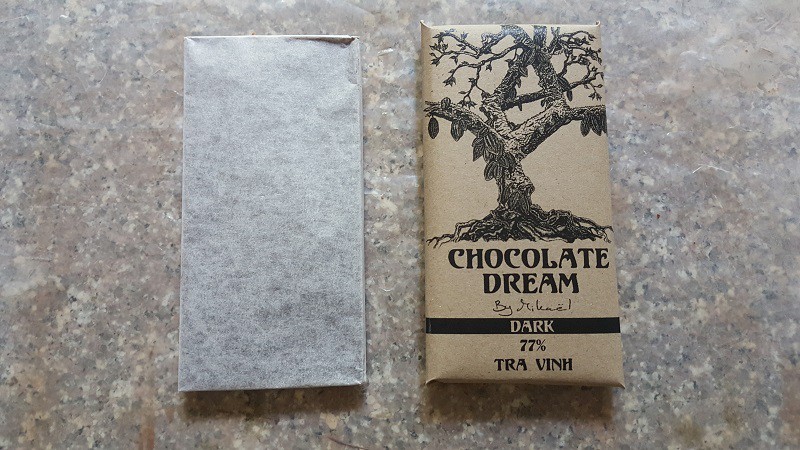
Mikaël first happened upon his dream plot of land in 2006, when he decided to move to Laos from Israel; it was actually the first property he looked at. After three years Mikaël opened his eco-guesthouse, Dream Time, to little fanfare. He just hung up a few posters in town, and guests began to trickle in. His hope was simply to share the forest with people who wanted to truly be with nature. Within four years they were number one on TripAdvisor for Vientiane, which was "the beginning of the end," says Mikaël.
The guest house's bungalows were a place to truly be present on the land. But once they hit number one, people didn't stay there because they read the description and wanted to be one with the spiders and lizards, wifi-free for the duration. They came to stay at the place that was number one on TripAdvisor. "I would say the first thousand people that came were exactly meant to be there; they were travelers, not tourists," he remarked with an easy smile. But eventually, all the little shifts that came about with the changing clientele altered the ambiance.
Dream Time was now someone else's dream, and Mikaël made the painful choice to close it down. Locals who'd been going there for picnics protested, begging him to remain at least partially open, but as soon as he made the decision to close Mikaël felt it was the right choice. All in or all out; that's how he does things. He finally got his life, his oasis back. His forest was once again his— well, his and his wife's, whom he met when she stayed at Dream Time— to do with what they please.
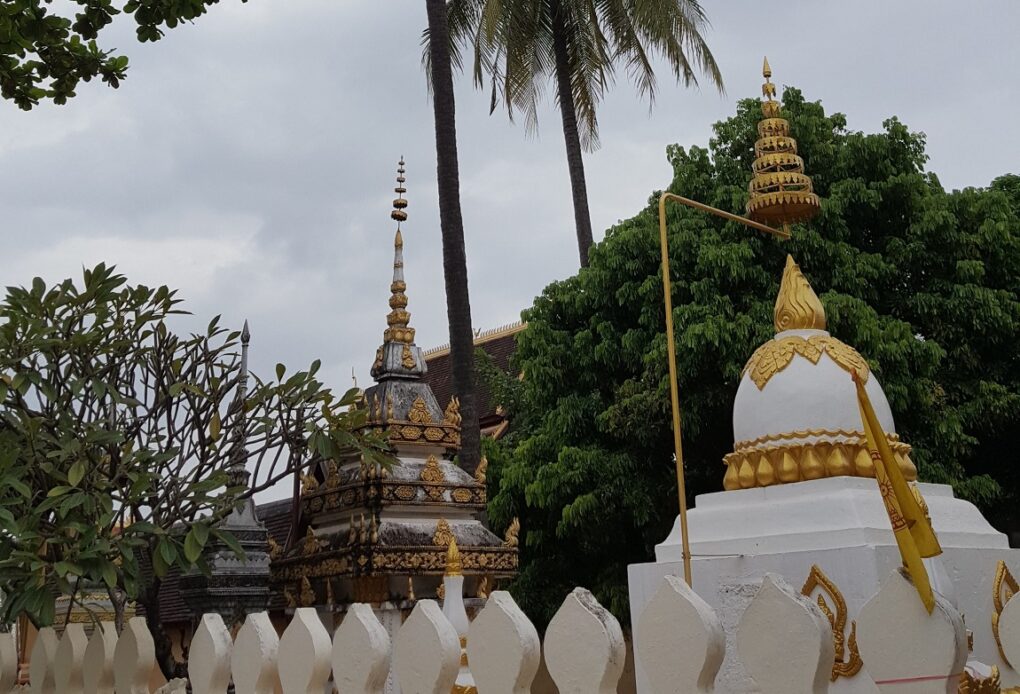
For the year after Dream Time closed, Mikaël found himself once again taking lots of long walks in his forest. For meandering stretches of time, he merely reacquainted himself with his land, lamenting the thought of getting a job and working for someone else again. "I guess it was one of these days that I was walking in the forest, a bit lost, that I had a vision. A proper vision... I imagined in my mind the whole process of making chocolate."
That vision got him about 90% of the way to palatable chocolate, with the other 10% or so easily filled in by Professor Google. Being half Belgian and half Dutch (but raised in Israel), Mikaël had eaten his fair share of quality chocolate growing up.
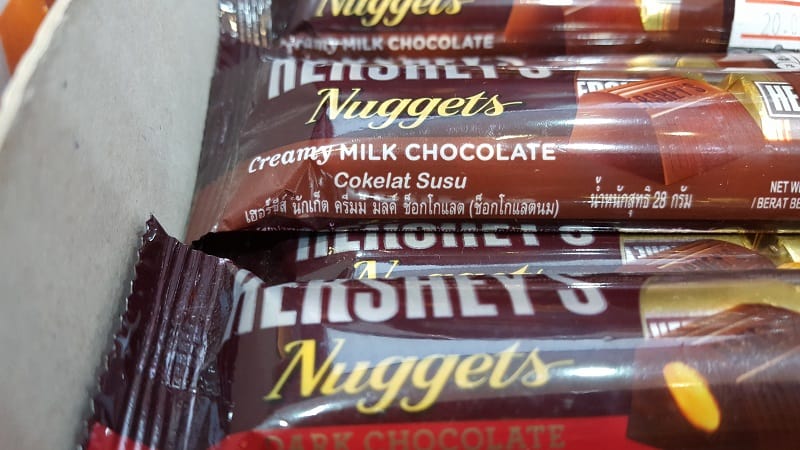
After telling his brother about his forest vision, Mikaël was challenged to make a real batch of chocolate by the end of that year. But by late 2015, his research and home experiments had taught him that he'd need to invest in a bit of equipment before he could make anything that really resembled chocolate.
"I grew up on Belgium chocolate [sic]. I dunno, I guess my standard of chocolate was always very high... I didn't start selling my chocolate until a year after that first batch, until I felt 'wow, this is really good.'"
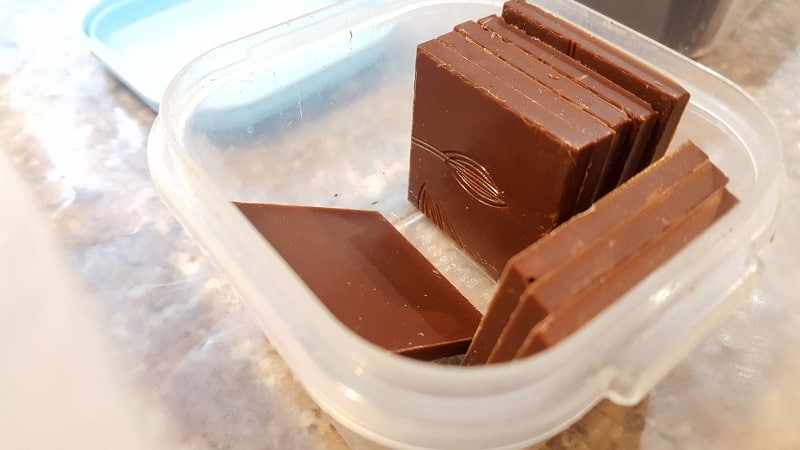
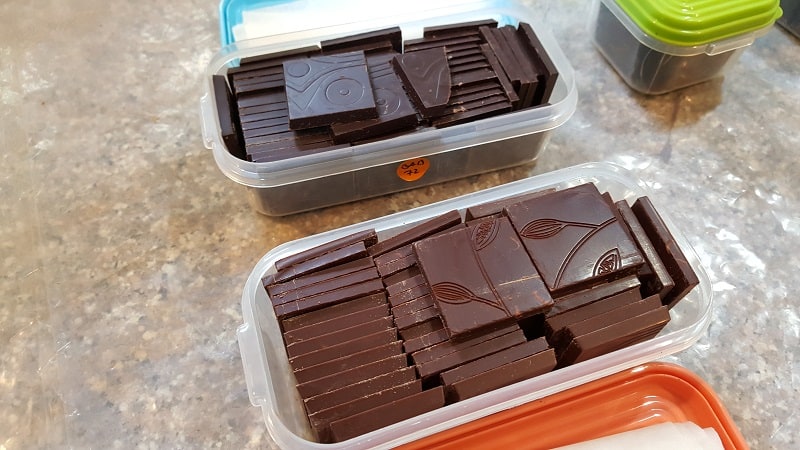
So in late 2015, Mikaël bought his first melangeur. He rode his motorbike to the border, purchased a bag of Thai cacao, and used it to make his first batch of chocolate. He still has some of it, too. "It's disgusting. Like, impossible to eat," he huffs, laughing softly. "But I'm happy it didn't work. Because if it had worked on the first try, it would have been too easy.... if it was so easy to make good chocolate, then there's no challenge; you get bored of it quite quickly."
Even after his first public releases, it took another year or so for him to come up with recipes he felt good about. At that point he was still using Thai cacao, but in 2018 he started to travel more, making more connections with farmers across Asia. His first new origin was Bali, and then Timor Leste, Chiang Mai, Vietnam, and so on. He's still collecting new sources, too.
These days Mikaël makes it all, from white and milk to the darkest of dark. His go-to percentages are 77% (for the year he was born), which then expanded to 88% (for his sister's birth year), and progressed logically into 55% and 66% from there. He's still using a lightly rusted $100 roaster sourced from a local Laos coffee producer, which had simply let it languish in a corner for years prior. But now, like his forest, the roaster is seeing new life.
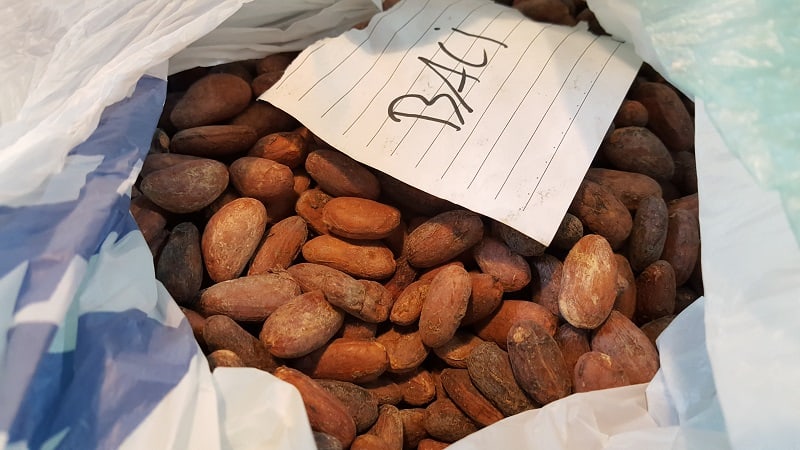
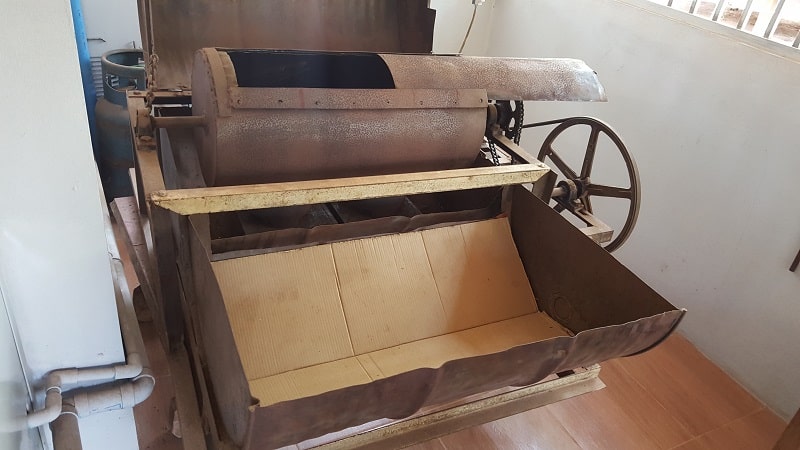
As of late 2019, Mikaël still imports all of his cacao into Laos by hand, directly buying from cacao farmers in countries throughout Asia & the South Pacific. On my visit, his stock included bars made with cacao from Thailand, Indonesia, and Vietnam. Although he enjoys rotating in new origins when he can get his hands on them, Mikaël prefers to maintain relationships with farmers he's already been working with.
Over the years, he's tried to plant cacao on his land a few times, but it never lived very long. There are lots of spores in the air near Vientiane, so termites thrive on the mushrooms that easily grow in the cacao wood, killing off saplings right quick. Yet just ten kilometers away, his sister-in-law managed to raise some cacao quite easily. So all hope is not lost for Laotian cacao— one day, far in the future.
He's even been trying to convince some local farmers to plant cacao trees, with the promise of buying all their yield outright, but he's not yet gotten any bites (that he knows of). Apparently the Laotian cannabis industry is reviving, and farmers know what they could earn if they grow it on their land. So cacao's been a hard sell. "Who knows; in five years I could have 100 farmers offering me cacao. But who knows, maybe, hopefully in five years I could use it all."
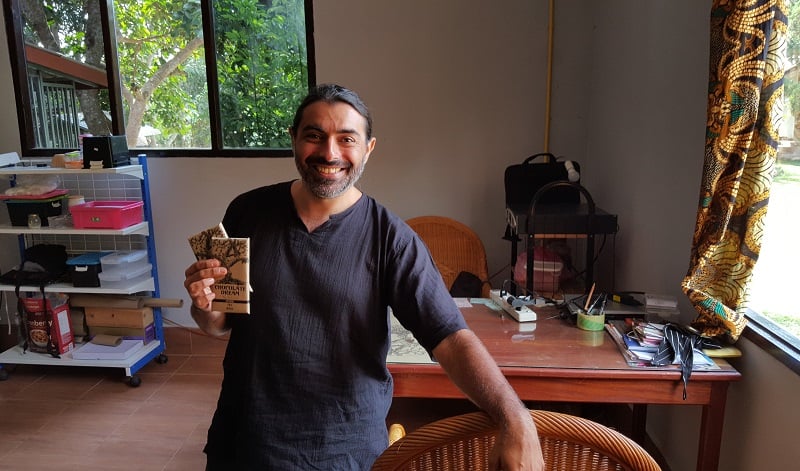
While the Belgian-Dutch chocolate maker doesn't have a cafe right now, he also lacks the desire to place that burden upon his family. It reminds him too much of the beginning of the end of Dream Time, and he's a man who learns from his mistakes. Plus, that's not the part of chocolate making which interests him.
"My ideal is to have a few Lao [people] running the show here, and my job is to travel the world finding good cacao, and bring it back here to make chocolate."
Maybe in a few years this will be the case, but for now, Mikaël is sourcing, importing, sorting, roasting, peeling, and grinding each bag of cacao into chocolate by hand. He or his part-time employee tempers each batch of chocolate before hand-packaging and hand-delivering them to shops around Vientiane. With a recent expansion further north, it looks like slow and steady will win the race— emphasis on slow.
To find Mikaël's chocolate, check his Facebook or Instagram for updates on which spots in Vientiane sell his bars. If you're lucky you'll visit Vientiane on an expo day!

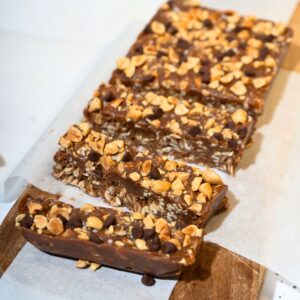



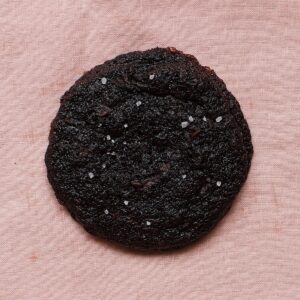





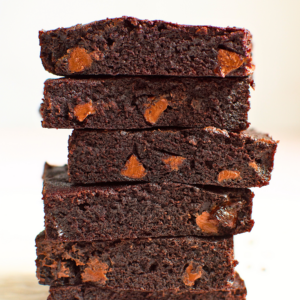

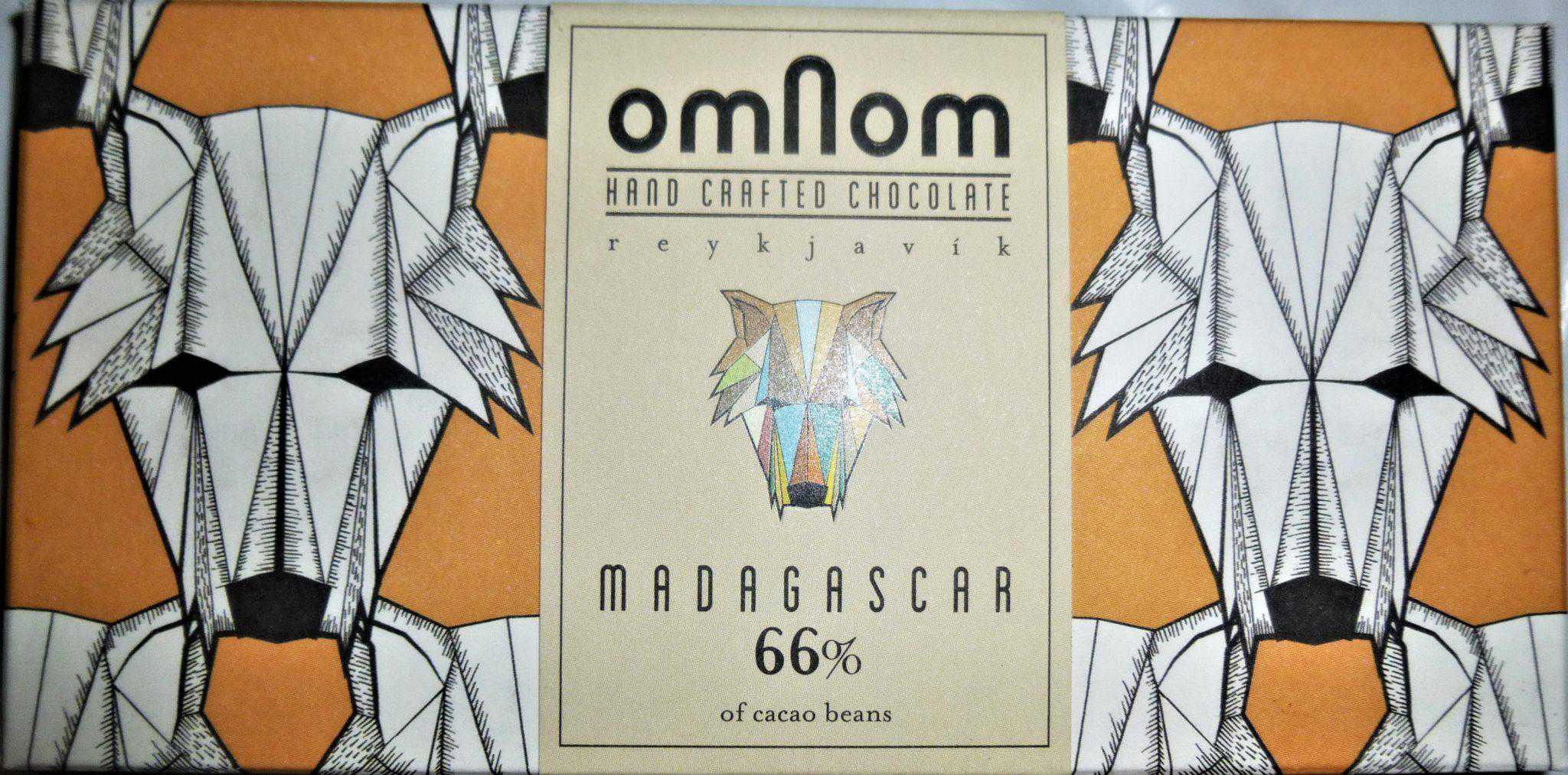
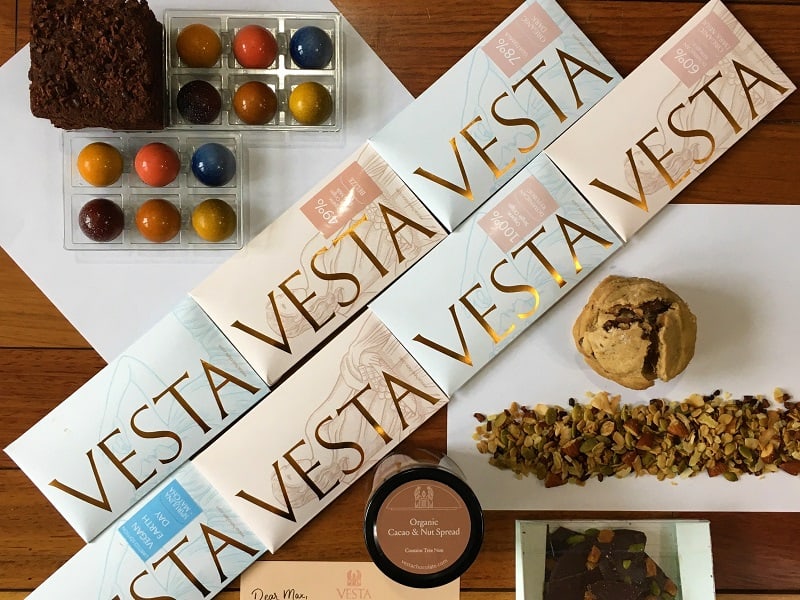

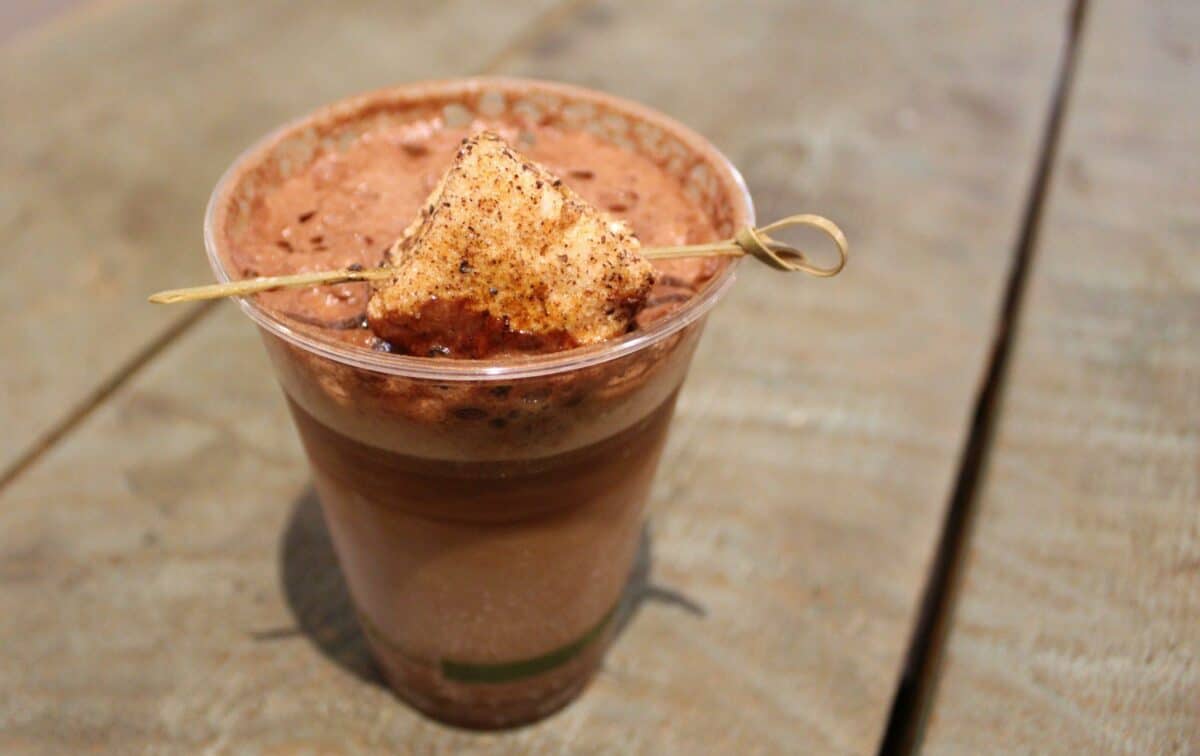
Katie
Such a lovely chocolate story about Mikaël!
Max
Agreed! His presence was actually the only reason I chose Vientiane for our few days in Laos. I was so glad that he had time to meet with me on our last day in the country, and share his story!